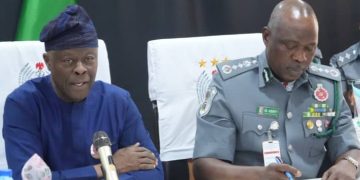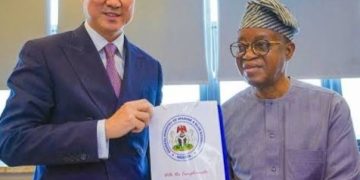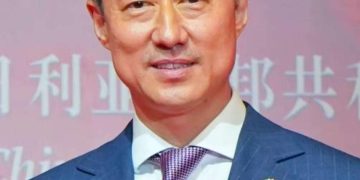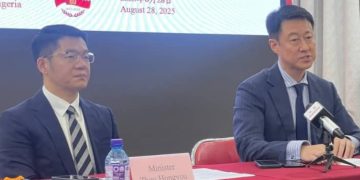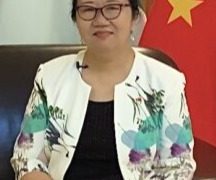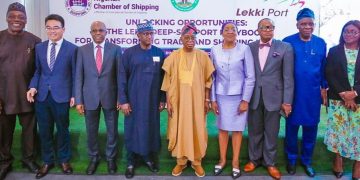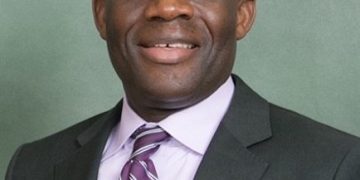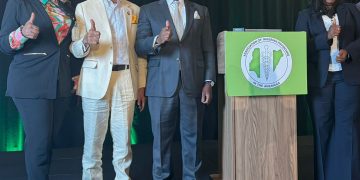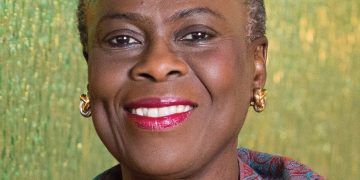- Director-General of the World Trade Organisation, Dr. Ngozi Okonjo-Iweala (left), with the Comptroller-General of Customs, Bashir Adeniyi, on the sidelines of the opening Sessions of the 145th/146th Customs Co-operation Council in Brussels
By Anthony Nwachukwu
The Director-General of the World Trade Organisation (WTO), Dr. Ngozi Okonjo-Iweala, has commended the Nigeria Customs Service (NCS) for its remarkable modernisation and trade facilitation.
Okonjo-Iweala spoke on Thursday during the opening of the 145th/146th Sessions of the Customs Co-operation Council at the World Customs Organisation (WCO) Headquarters in Brussels.
In her keynote address, Okonjo-Iweala applauded the leadership of the Comptroller-General of Customs, Bashir Adeniyi, for the agency’s continued efforts in aligning its operations with international trade standards.
She acknowledged the NCS’ significant progress in deploying technology, strengthening border procedures and improving compliance frameworks, stating that Adeniyi’s leadership “has positioned Nigeria as a model for customs modernisation across the continent.”
According to her, “these efforts are critical to strengthening global trade and ensuring that customs administrations contribute meaningfully to economic development.”
Okonjo-Iweala also emphasised the importance of tackling complex customs issues such as rules of origin and valuation, noting that these technical areas remain critical to effective trade facilitation.
Reacting to the commendation in a side interaction afterwards, Adeniyi said the WTO chief’s recognition was a strong encouragement for the NCS to sustain its reform momentum.
“We are honoured by the kind words of Dr. Ngozi Okonjo-Iweala, a global icon and an advocate for inclusive trade,” Adeniyi said. “Her recognition of our efforts is not only humbling but also energising.
“It affirms that the reforms we have embarked upon, particularly in areas of automation, transparency, institutional capacity and innovative leadership, are well aligned with global best practices.
“As we modernise our processes and embrace smarter solutions to enhance legitimate trade facilitation, we are also committed to rallying customs administrations across Africa to fully support the objectives of AfCFTA.”
Adeniyi further expressed support for the growing collaboration between the WCO and the WTO, especially against the backdrop of the January 2025 memorandum of understanding, which provides a framework for cooperation in such key areas as customs valuation, rules of origin and trade facilitation.
Adeniyi further commended WCO Secretary-General, Ian Saunders, for his visionary leadership and for reinforcing synergies between global institutions.
According to him, “Nigeria is fully aligned with the objectives of this partnership and remains committed to implementing reforms that support transparent, secure and efficient trade flows.”
He emphasised that the enhanced WTO–WCO partnership would benefit developing countries like Nigeria by providing the tools and policy support needed to modernise customs procedures to boost international competitiveness.

